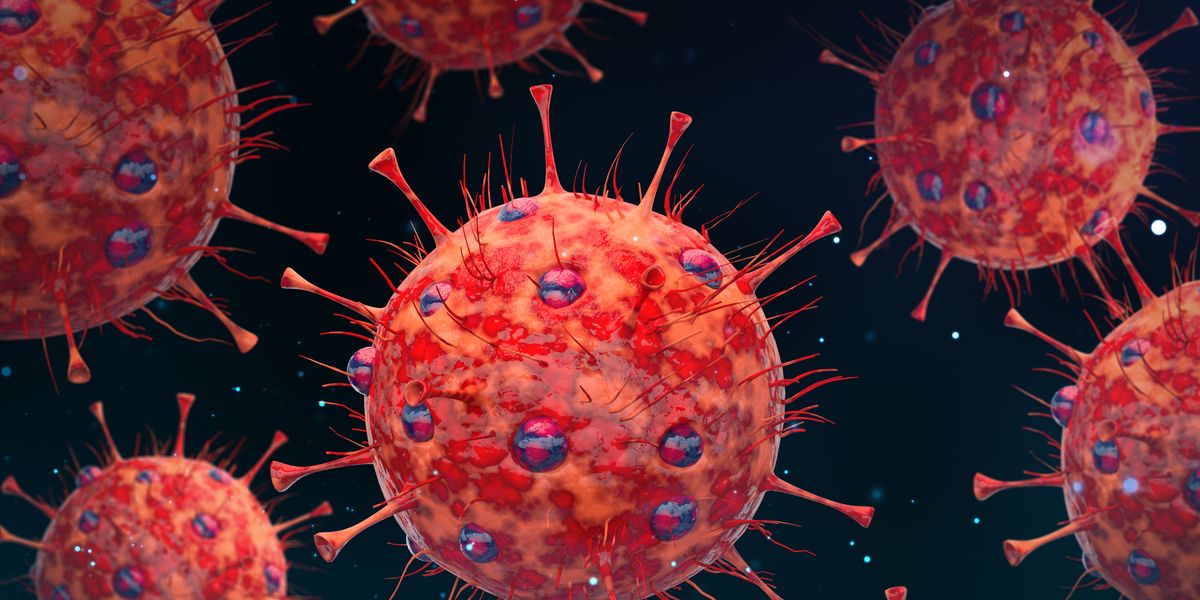HV.1: The Newest COVID-19 Variant Taking Over the U.S.
The latest COVID-19 variant making headlines in the United States is HV.1. Currently, HV.1 accounts for nearly 20% of COVID-19 cases in the country. This variant is a descendant of both Omicron and EG.5, and it is rapidly gaining ground.
As we enter the peak of respiratory virus season, HV.1 is the variant to keep a close watch on. It is quickly replacing the current dominant variant, EG.5, according to data from the Centers for Disease Control and Prevention (CDC). HV.1 first emerged in mid-summer, with cases surging since September.
So, what exactly is HV.1 and should you be concerned? Here’s what we currently know:
What is COVID-19 variant HV.1?
Like many recent COVID-19 variants, HV.1 is related to the Omicron strain. Infectious disease expert Dr. Amesh A. Adalja explains that HV.1 is another Omicron XBB variant that originates from EG.5. In simpler terms, HV.1 came from EG.5, which came from XBB, a form of Omicron. Essentially, HV.1 is just another variant of Omicron, confirms Dr. Thomas Russo, an infectious disease specialist.
HV.1 has distinct changes to its spike protein compared to EG.5. The spike protein is essential for the SARS-CoV-2 virus to bind to cells and cause illness.
How contagious is HV.1?
It is difficult to determine the exact level of contagion for HV.1 at this stage. However, the rapid increase in cases from 0.5% in mid-July to nearly 20% in mid-October suggests that this variant is highly contagious.
Should you be concerned about HV.1?
According to the experts, there is no need to be alarmed about HV.1 at the moment. Dr. Adalja highlights that new variants of SARS-CoV-2 are to be expected, and most will not pose a significant threat. While HV.1 is highly transmissible, it does not appear to cause more severe disease compared to other circulating variants, reassures Dr. William Schaffner, an infectious disease specialist.
How can you differentiate HV.1 from other variants?
There are no distinctive symptoms that set HV.1 apart from other variants. According to Dr. Russo, the only way to identify HV.1 is through specialized genetic testing.
What are the symptoms of HV.1?
The symptoms of HV.1 are consistent with other COVID-19 variants. These include fever or chills, cough, shortness of breath, fatigue, muscle or body aches, headache, loss of taste or smell, sore throat, congestion or runny nose, nausea or vomiting, and diarrhea.
Dr. Schaffner notes that HV.1 appears to cause more cold-like symptoms. However, the severity of infection can vary from person to person. While it may resemble a common cold for some individuals, it could pose a significant risk to immunocompromised individuals.
Does the new COVID-19 vaccine protect against HV.1?
Currently, limited data is available on the effectiveness of the new COVID-19 vaccine against HV.1. However, doctors believe that the updated vaccine should offer protection against this variant. The updated vaccine is based on the XBB.1.5 variant, which is the parent variant of HV.1.
Does HV.1 increase the risk of long COVID?
It is too early to determine whether HV.1 increases the risk of long COVID. Dr. Russo explains that if HV.1 does cause more severe disease, it could potentially increase the risk. However, there is currently no evidence to suggest this.
Are there treatment and prevention methods for HV.1?
As HV.1 rapidly spreads in the United States and becomes the dominant variant, it is important to stay vigilant. While much is still unknown about this variant, following standard precautions such as getting vaccinated, practicing good hand hygiene, and avoiding contact with visibly ill individuals can help reduce the risk of infection. Additionally, using N95 or Kn95 face masks may offer added protection.
Remember, COVID-19 is still a concern. If you experience symptoms, it is crucial to get tested as soon as possible and consult your doctor if you test positive. Antiviral medications may be an option for treatment.
Korin Miller is a freelance writer specializing in general wellness, sexual health and relationships, and lifestyle trends. Her work has been featured in Men’s Health, Women’s Health, Self, Glamour, and other publications. She holds a master’s degree from American University and dreams of owning a teacup pig and taco truck by the beach someday.


